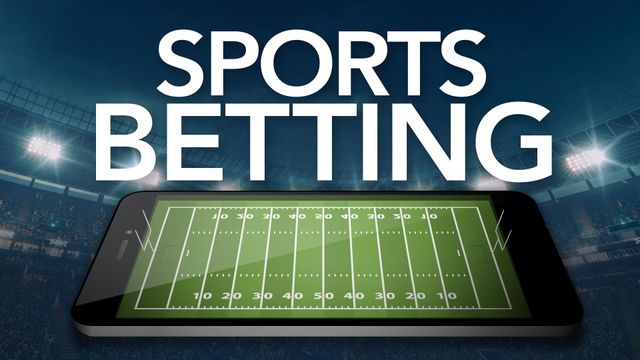Up next for sports betting in NC: Sportsbooks, horse racing, fantasy contests
Mobile sports betting is not yet live in North Carolina, but the state's lottery commission is already considering its next steps in the expansion of wagering.
Mobile sports betting launches March 11 with eight licensed operators allowed to accept bets from adults located within the state. North Carolina will be the 30th state, including Washington, D.C., to allow mobile sports betting. Users can sign up for accounts now.
But North Carolina's law allows for more than just mobile sports betting. It also approved pari-mutuel wagering on horse races and in-person sportsbooks at specific sports facilities. The law also required the commission to submit a report to the Join Legislative Oversight Committee by March 1.
Among the highlights of the report:
Wagering on horse racing
The commission said that additional rule making specifically concerning pari-mutuel wagering and horse racing are planned for later this year. It did not spell out a timeline. Pari-mutuel wagering means that all money is pooled and the payout depends on the amount of winning bets placed.
One thing that could be stopping pari-mutuel operators from coming into North Carolina, the commission wrote, is the state's licensing fee, which is $1 million for a five-year period (or $200,000 per year). It "is substantially higher than any other jurisdiction in the United States. New York has a $20,000 per year license fee, which is currently the highest in the country, and it would be quite surprising if any operator chose to enter the market with a license fee 10x the New York fee."
The commission wrote that "this could potentially be rectified by allowing an advance deposit wagering (ADW) operator to partner with a sports wagering operator, but that likely would require a legislative amendment."
In-person sports wagering
The law allows for most operators to have "two permanent places of public accomodation" – one located on the property of a sports facility and another within a half-mile radius of a sports facility.
The commission wrote that "only one operator-applicant indicated in its application its intention to operate a place of public accommodation."
Carolina Hurricanes president and general manager Don Waddell previously told WRAL that the franchise wants to open an in-person facility and that it chose Fanatics Sportsbook as its partner because of Fanatics willingness to operate an in-person sportsbook.
The Hurricanes are considering inside PNC Arena or at the nearby Backyard Bistro, which they recently purchased. The restaurant would likely not have the space to accommodate all the security, surveillance and other compliance obligations put forth by the commission.
The commission was asked if the "eligible Places of Accommodation might avail themselves of a lighter set of compliance requirements if the facility opts to not have a 'full' sportsbook, and instead operates a limited number of kiosks only."
Commission staff is evaluating the request, it wrote.
Fantasy gaming
Early in its rule-making process, the commission initially proposed that fantasy pick'em contests, where users compete against the house and not other users, be considered sports gambling.
There was strong push back from companies in that space, including Underdog Fantasy, and the rule was shelved by the commission, which said it would monitor the actions that other states took.
Underdog recently canceled its fantasy pick'em contests in North Carolina. It is one of the eight licensed sports betting operators.
Other states have begun to crackdown on the fantasy pick'em contests, which are often a series of statistical prop bets for individual players.
In its report, the commission wrote that it and "and its staff are monitoring regulatory actions in other gaming jurisdictions where policymakers are taking enforcement actions, bringing lawsuits, or engaging in rulemaking to address unauthorized sports wagers marketed inappropriately under other names. Actions in these peer jurisdictions may inform Commission policy, actions by enforcement authorities, and lawmakers’ priorities."
The commission said it "does not seek to regulate fantasy sports as they are appropriately understood and commonly enjoyed." But it made clear that it does not think the pick'em offerings are fantasy sports.
"Certain unlawful commercial offerings available in the marketplace that tend to disguise or mischaracterize a 'sports wager' as something else – e.g., as a 'pick ‘em' bet, a fantasy
proposition, a prop fantasy offering – run afoul of North Carolina law and present enforcement and audit challenges," the commission wrote in its report.







